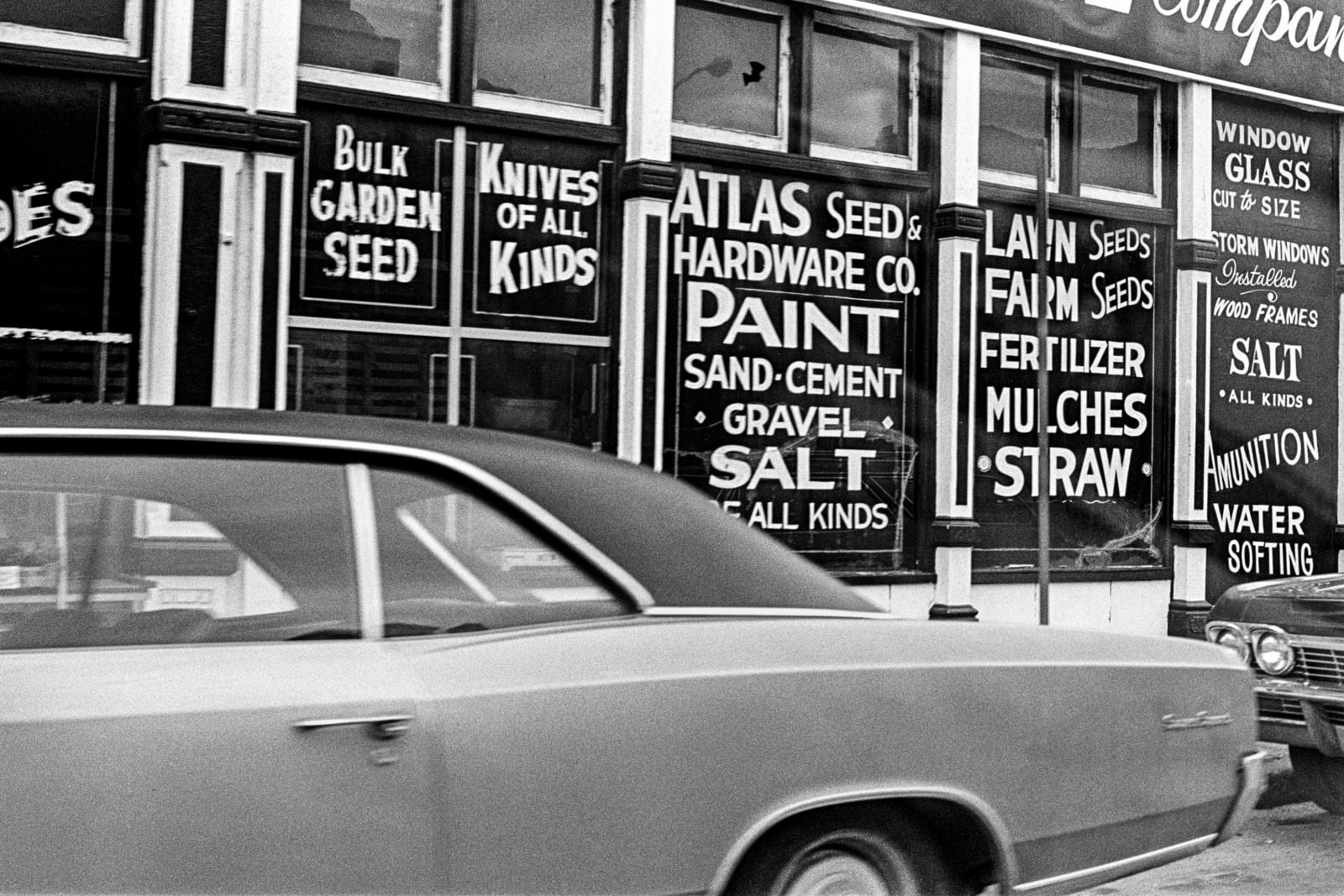
Clark Winter American, b. 27/10/1951
.
Paper: 40.6 x 50.8 cm / 16 x 20 in
.
In Clark Winter's "Atlas Seed, Mount Liberty, Ohio, 1972," time seems suspended between worlds. The black-and-white photograph captures Main Street when small towns still pulsed with independent life, before chain stores would hollow out these intimate commercial districts.
Mount Liberty, an unincorporated community in Knox County founded in 1835, served as witness to America's great transformation. Winter, then twenty-one, was part of a generation revolutionizing documentary photography during the turbulent 1970s, influenced by masters like Robert Frank who challenged conventional photographic storytelling.
The Atlas Seed & Hardware Co. storefront dominates the frame with handpainted signs advertising rural essentials: "BULK GARDEN SEED," "KNIVES OF ALL KINDS," "PAINT," "SAND-CEMENT," "GRAVEL," and "SALT." These honest advertisements speak to an era when local merchants knew their customers personally and stocked what communities needed to thrive.
A sleek automobile sits in the foreground, its curved lines embodying the postwar American dream of mobility. The juxtaposition between modern vehicle and traditional storefront captures the tension between progress and continuity defining early 1970s America.
Winter's documentary approach aligned with photography's transformation during this period - moving from supposedly objective documentation toward more personal, interpretive approaches. His image doesn't simply record the storefront; it preserves a vanishing way of life.
Today, Winter's photograph serves as an invaluable historical document of disappearing America. The painted signs, unguarded street scene, and integration of commerce and community speak to social patterns soon transformed by suburban sprawl. In capturing this quiet Mount Liberty moment, Winter preserved the last breath of small-town commercial intimacy.